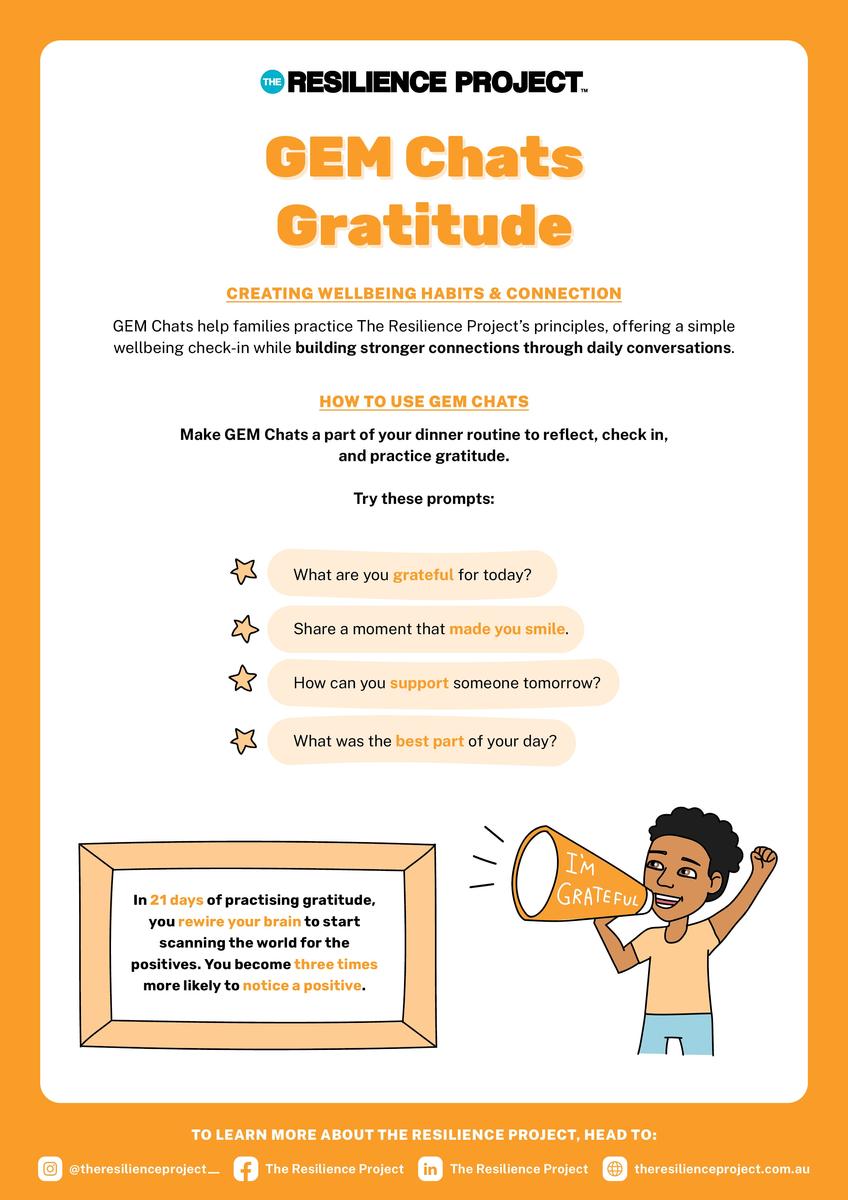Student Wellbeing

The Benefits of Teaching Gratitude
Teaching gratitude to students is essential for several reasons, as it positively affects their emotional, social, and academic development. Here are some key reasons why it matters:
Promotes Positive Mental Health
Gratitude increases happiness and emotional well-being. When students regularly practice gratitude, they tend to experience more positive emotions, which helps them manage stress, anxiety, and frustration more effectively. It can create a healthier emotional climate in the classroom and reduce negative behaviours.
Fosters Stronger Relationships
Gratitude encourages students to appreciate others, express their thanks, and build stronger social bonds with peers and teachers. As they practice gratitude, students become more likely to show empathy, kindness, and cooperation, fostering a more inclusive and supportive learning environment.
Enhances Academic Performance
Gratitude shifts students’ focus from what they lack to what they have, fostering a sense of contentment and possibility. This positive outlook helps develop a growth mindset, where students view challenges as improvement opportunities. As a result, students are motivated and engaged in their studies, which enhances their commitment to learning and boosts academic performance.
Builds Resilience
Gratitude teaches students to focus on the positive aspects of their lives, even during adversity. By regularly practicing gratitude, students develop resilience and perseverance. For example, a student who thanks a peer for help during a demanding project is more likely to face future challenges with optimism, knowing that support and positivity can emerge even in difficult times.
Promotes a Positive Classroom Environment
Gratitude contributes to a more respectful and appreciative classroom atmosphere. When students and teachers regularly acknowledge and express gratitude, it reduces conflicts and fosters a culture of kindness, cooperation, and mutual respect, making the learning environment more harmonious.
Develops Emotional Intelligence
Gratitude helps students become more aware of their emotions and the emotions of others. As they regularly express thanks, students become more attuned to their words and actions’ positive impact on others, a critical aspect of emotional intelligence. Understanding and managing emotions is essential for building healthy, lasting relationships inside and outside the classroom.
Encourages Mindfulness
Gratitude helps students become more present and mindful. By reflecting on what they are grateful for, students learn to appreciate the present moment rather than constantly focusing on future achievements or past regrets. This mindfulness improves focus and reduces distractions in the classroom.
Supports Character Development
Gratitude is a core value that contributes to overall character development. It teaches students essential life skills, such as humility, generosity, and responsibility. These qualities improve their behavior in school and prepare them to become compassionate and thoughtful members of society.
Jenny Willmott
Deputy Principal and Student Wellbeing


